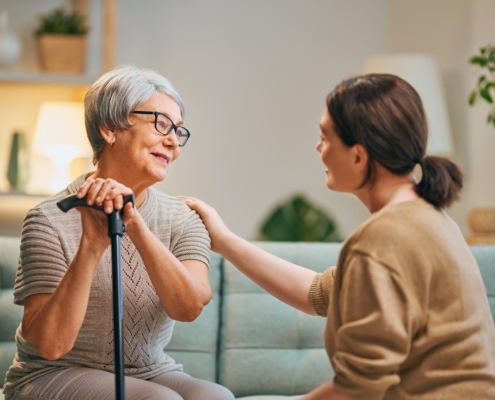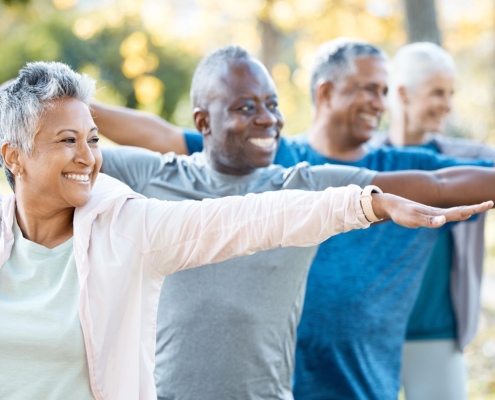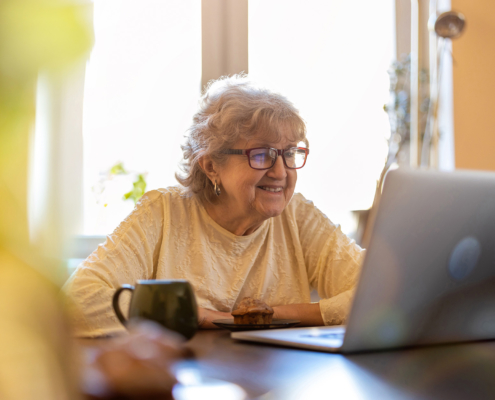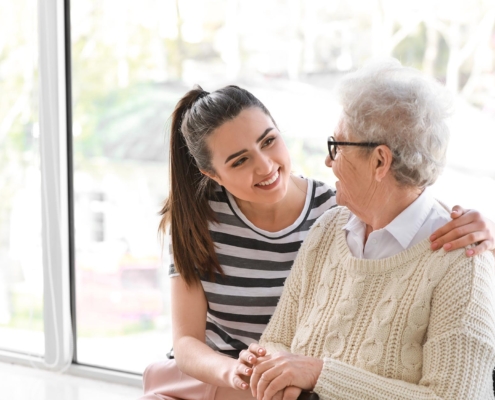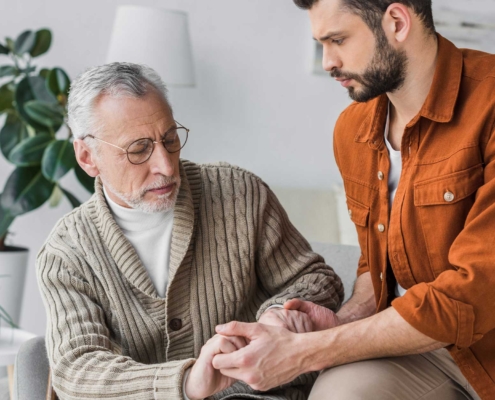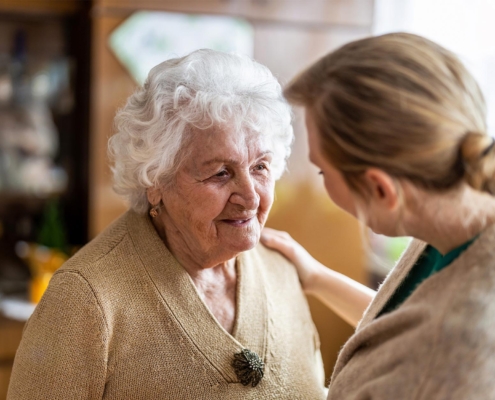
Signs Your Loved One Needs Veterans Home Care Benefits
Caring for an aging loved one is both a privilege and a challenge. Over time, everyday tasks that once seemed simple may become difficult, leading family members to wonder whether additional support is necessary. For Veterans or their surviving spouses, Veteran home care can provide the extra assistance needed to maintain dignity, comfort, and independence.
If you’ve started noticing changes in your loved one’s physical health, emotional well-being, or ability to manage daily activities, it may be time to consider home care options. Here are some signs that indicate they may need additional support.
1. Difficulty Managing Daily Activities
One of the most obvious signs that a loved one may need home care is difficulty managing everyday tasks. Activities such as bathing, dressing, preparing meals, and housekeeping can become overwhelming as people age. If you notice that their home is untidy, their clothes are frequently unwashed, or they struggle to keep up with grooming, it may be time to explore Veteran home care .
Home care can offer personalized assistance to help with these tasks, ensuring that Veterans and their spouses continue aging in place safely and comfortably.
2. Increased Risk of Falls or Injuries
Falls are one of the leading causes of injury among seniors. If your loved one has recently experienced a fall or struggles with balance, it could be an indication that they need additional support. Signs of instability include:
- Holding onto furniture while walking
- Hesitation when standing up or sitting down
- Unexplained bruises or injuries
Having a caregiver nearby can reduce the risk of falls by assisting with mobility, encouraging strength-building exercises, and creating a safer living environment. VA benefits can help cover the cost of services that improve safety and reduce the likelihood of accidents.
3. Changes in Memory and Cognitive Function
Memory lapses are a natural part of aging, but more severe cognitive issues may indicate the early stages of dementia or Alzheimer’s. Signs to look for include:
- Forgetting appointments or important dates
- Getting lost in familiar places
- Difficulty following conversations
- Misplacing items frequently
If your loved one is struggling with memory loss, senior home health services can provide specialized care to support their unique needs. Professional caregivers can help with medication management, cognitive exercises, and daily reminders, ensuring that Veterans and their spouses remain safe and comfortable at home.
4. Poor Nutrition or Unintentional Weight Loss
Good nutrition is essential for maintaining overall health, but many seniors struggle with meal preparation. If you notice your loved one skipping meals, relying on unhealthy processed foods, or experiencing unexplained weight loss, they may need extra assistance.
Caregivers can help with grocery shopping, meal planning, and cooking nutritious meals to ensure proper nutrition. Through Veteran’s home care, families can access support that keeps their loved ones healthy and well-nourished.
5. Isolation and Withdrawal From Social Activities
Loneliness and isolation can significantly impact a senior’s mental and emotional well-being. If your loved one has stopped participating in hobbies, visiting friends, or attending social gatherings, they may be feeling lonely or depressed.
Home care can provide not only physical assistance but also companionship. Having a caregiver visit regularly can help prevent isolation and encourage social engagement. Whether it’s a simple conversation, a shared meal, or assistance in attending community events, companionship is a crucial aspect of senior home health services.
Are you prepared to discuss the topic of aging in place with your loved one? Here are six tips to assist you in approaching this sensitive subject with empathy and understanding.
6. Increased Difficulty Managing Medications
Many seniors take multiple medications daily, and keeping track of dosages and schedules can be challenging. If you notice your loved one:
- Forgetting to take their medication
- Taking incorrect dosages
- Running out of medications without refilling them
It may be time to consider home care services. Caregivers can help manage medications, ensure they are taken correctly, and communicate with healthcare providers if adjustments are needed. VA benefits can provide financial assistance to make these services more accessible.
7. Declining Personal Hygiene
Changes in personal hygiene can be an indication that your loved one is struggling with self-care. If they appear unkempt, wear the same clothes for days, or avoid bathing, it may be due to physical limitations, cognitive decline, or depression.
A professional caregiver can provide discreet and respectful assistance with bathing, grooming, and dressing, helping Veterans maintain their dignity and self-confidence while aging in place.
8. Housekeeping and Home Maintenance Challenges
Keeping up with household chores can become overwhelming as seniors age. Cluttered spaces, stacks of unopened mail, or neglected household repairs can indicate that your loved one needs help.
Caregivers can assist with light housekeeping, laundry, and home organization, ensuring that their living space remains safe and comfortable. VA benefits can help cover the cost of these essential services.
9. Increased Anxiety or Depression
Aging can bring emotional challenges, including anxiety and depression. If your loved one is expressing feelings of sadness, withdrawing from loved ones, or showing signs of irritability, they may benefit from emotional support.
Caregivers trained in senior care can provide companionship, emotional reassurance, and engagement in activities that promote joy and fulfillment. Connecting them with senior home health services can ensure that they receive the support they need to navigate emotional challenges.
10. Unpaid Bills and Financial Confusion
If your loved one has always been responsible with their finances but suddenly struggles with unpaid bills, lost checks, or unfamiliar charges, they may be experiencing cognitive decline. Financial difficulties can lead to stress and vulnerability to scams, so addressing these concerns early is crucial.
A caregiver can assist with organizing bills, setting reminders, and ensuring financial security. VA benefits can provide financial assistance for seniors who need additional help managing their daily responsibilities.
How to Ease the Transition to Home Care
Recognizing that your loved one needs help is the first step. The next challenge is having a conversation about home care in a way that respects their independence and preferences. Here are some tips:
- Start the Conversation Early: Bring up home care before a crisis occurs.
- Focus on Their Needs: Frame the discussion around their comfort, safety, and well-being.
- Involve Them in the Decision: Allow them to express their concerns and preferences.
- Highlight the Benefits: Emphasize how care can enhance their independence and quality of life.
Approaching the topic of home care with a loved one requires sensitivity and respect for their independence. By following these steps, you can help them see how additional support can enhance their quality of life while allowing them to maintain their autonomy.
How Veteran’s VA Benefits Can Help
For many families, the cost of senior care is a major concern. Veteran’s benefits such as VA Pension with Aid and Attendance can help cover the cost of in-home care services, allowing Veterans and their surviving spouses to receive the support they need without financial strain.
These benefits provide assistance with:
- Personal care (bathing, dressing, grooming)
- Meal preparation and nutrition
- Medication reminders
- Mobility support
- Housekeeping and errands
- Companionship and emotional support
By utilizing Veterans home care, families can ensure their loved ones receive compassionate, reliable care that enhances their quality of life while allowing them to remain comfortable and independent at home.
Final Thoughts
If you’ve noticed any of these signs in your loved one, it may be time to explore Veteran’s home care. Professional caregivers can provide compassionate support, helping seniors maintain their dignity, safety, and independence.
By taking proactive steps today, you can ensure your loved one receives the care and companionship they deserve while aging in place comfortably.
If you’re considering senior home health services for your loved one, now is the time to explore the available options. Support is out there—you don’t have to navigate this journey alone.
Find Compassionate Home Care Support With American Veterans Care Connection
At AVCC, we help families connect with trusted home care providers who offer the support Veterans and their surviving spouses need to remain safe and comfortable at home. Contact us today to learn how we can assist in finding the right care for your loved one.
Share This Post
Interesting links
Here are some interesting links for you! Enjoy your stay :)Pages
- About Us
- Account
- Areas We Serve
- Assisted Home Health Care
- AVCC Difference
- AVCC Provider Tools
- Bathing
- Become a Home Care Provider
- Become a Provider
- Become a Provider Now
- Blog
- Companionship
- Contact
- Contracts/Agreements
- Contracts/Agreements
- Fast Track for Providers
- Financial Assistance for Veterans
- For Providers
- Give the Gift of Home Care This Holiday Season
- Home
- Home Care Referrals
- Home Care Services
- HTML Markup
- Laundry
- Light Housekeeping
- Login
- Logout
- Meal Preparation/Feeding
- Members
- Missouri Veterans Benefits
- Password Reset
- Presentations
- Presentations
- Privacy Policy
- Private Duty Home Care
- Providers Tools and Resources
- Referral Resources
- Register
- Resources
- Start the Process
- Thank You
- Thank You – Become a Provider
- Thank You – Home Care Referral
- Thank You for Registering
- Transportation
- User
- VA Aid and Attendance
- VA Aid and Attendance Form
- VA Assisted Living
- VA Benefits for Spouses
- VA Home Health Care
- VA Nursing Home
- Veteran Emergency Assistance
- Veterans Assisted Living
- Veterans Care Coordination
- Veterans Home Care
- Veterans Home Care
- Veterans’ Assistance
- Veterans’ Pension Benefits
- Why American Veterans?

